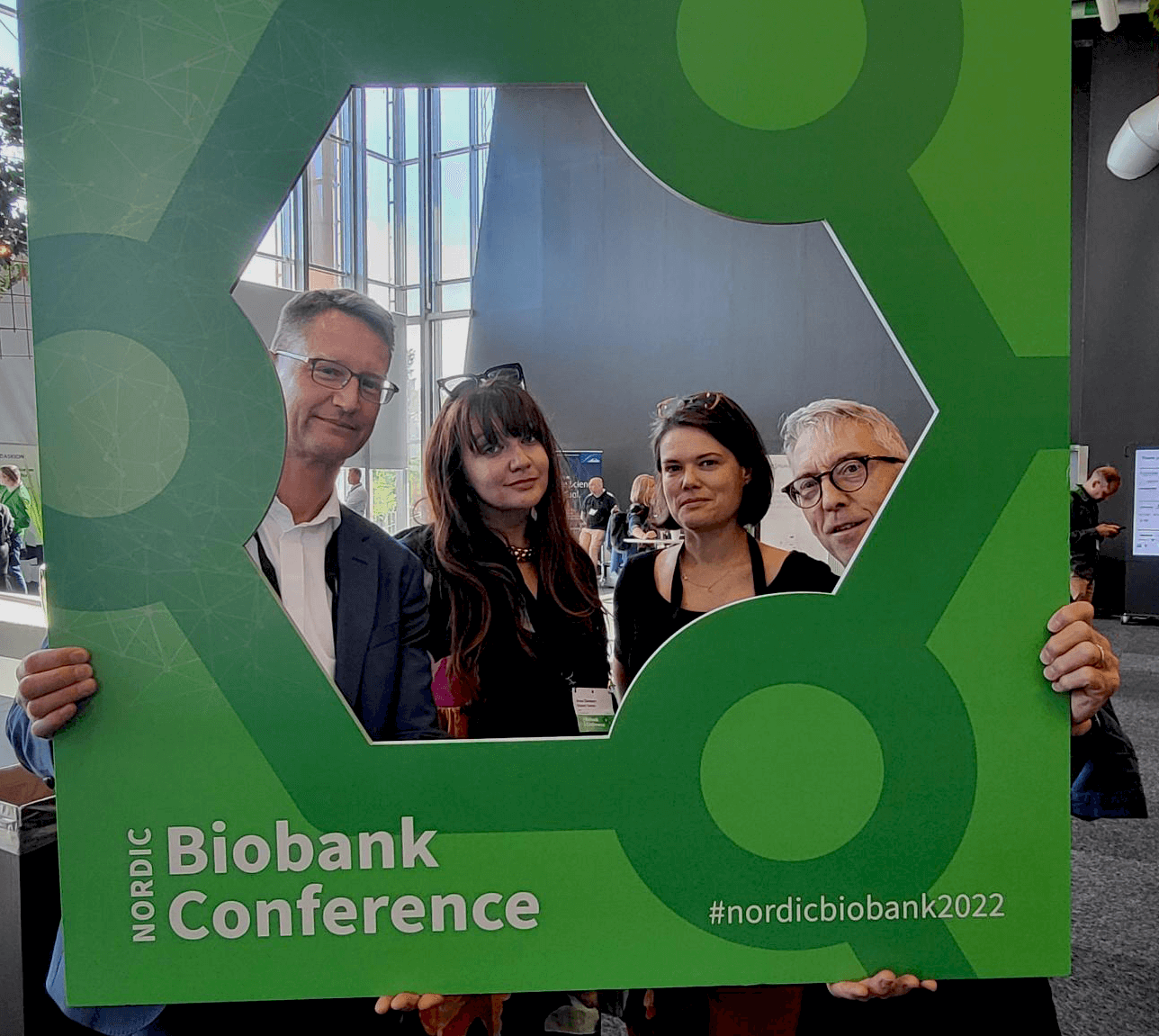I am looking for information as
Researcher

Industry

Patient

Strengthening collaboration between BBMRI-ERIC and the Nordic biobanks – conference report
Professor Jens Habermann, Director General, Dr. Michaela Th. Mayrhofer, Head of ELSI, and Dr. Manuela Pausen, Scientific Stakeholder Specialist, recently attended the first Nordic Biobank Conference in Gothenburg, Sweden. The conference presented a unique opportunity to meet representatives in the field of human biobanking as well as other scientific experts from healthcare, academic, and industry sectors.
Current trends and challenges
The conference focused on current trends and challenges faced by the Nordic biobank sector. This context was illustrated in the opening panel that featured Sonja Eaker Fält (Biobank Sweden), Kristian Hveem (NTNU, Biobank Norway), Lasse Boding (Danish National Biobank), Marco Hautalahti (Finnish Biobanks), and Jón Jónsson (University of Iceland).
Prof. Jens Habermann (BBMRI-ERIC) highlighted the role of the organisation in advancing biobanking in Europe and warmly welcomed the opportunity to collaborate with Nordic biobanks. As the European research infrastructure for biobanking and biomolecular resources, BBMRI-ERIC enables access to nearly 700 biobanks and 1800 sample collections. These collections including cohorts from across Europe in many vital research areas such as cancer, rare diseases, paediatrics, infectious diseases, and COVID-19. The latter was of particular interest, as an additional session underlined the role of Nordic biobanks in pandemics and particularly how these biobanks could be utilised to support COVID-19 research.
Lasse Boding, Head of the Coordinating Centre of the Danish National Biobank, announced that they were looking forward to continuing a fruitful collaboration with BBMRI-ERIC in the future. Linda Paulson Head of Biobank West at Sahlgrenska Hospital Sweden then stressed how happy they are to work with BBMRI-ERIC and excited that they will soon receive the BBMRI-ERIC Quality Certificate.
Cutting edge topics
Jointly organised by the Nordic countries of Denmark, Finland, Iceland, Norway, and Sweden, the conference featured a diversity of cutting–edge topics. Attendees gained insights into one of the most ambitious biobanking projects in the world (FinnGen), the challenges associated with combining stored human biological material with clinical and demographic registries, and how sampling techniques and sample quality impacts research findings.
Additional sessions addressed critical legal and ethical challenges connected to biobanking and gave an exciting glimpse into the future of next generation biobanking. Speakers underlined the need to find effective ways to provide participants with information about how data and samples were used, encourage their involvement in the research, and maintain their trust throughout the processes.
A special session featured a lively discussion on biobanking from the patients’ perspective as perceived by the speakers, a patient advocate and a genetic counsellor, specifically addressing weaknesses in the legal framework and ethical dilemmas.
Future gazing
Looking to the future, speakers predicted that next generation biobanking will contribute more directly and immediately to the clinical translation of research. Several speakers noted that building biobank infrastructure that is robust and sustainable brings both challenges and opportunities, primarily associated with forming new public-private partnerships, mining novel resources, and providing new research services. In addition, speakers highlighted innovative technologies, especially digitalisation, would enable new ways to visualise and work with the vast amounts of collected data.
Most of the discussions focused on strengthening the already existing biobanking and research collaborations between the Nordic countries and expanding the inclusion of patient representatives at all levels including in research and clinical trials.






